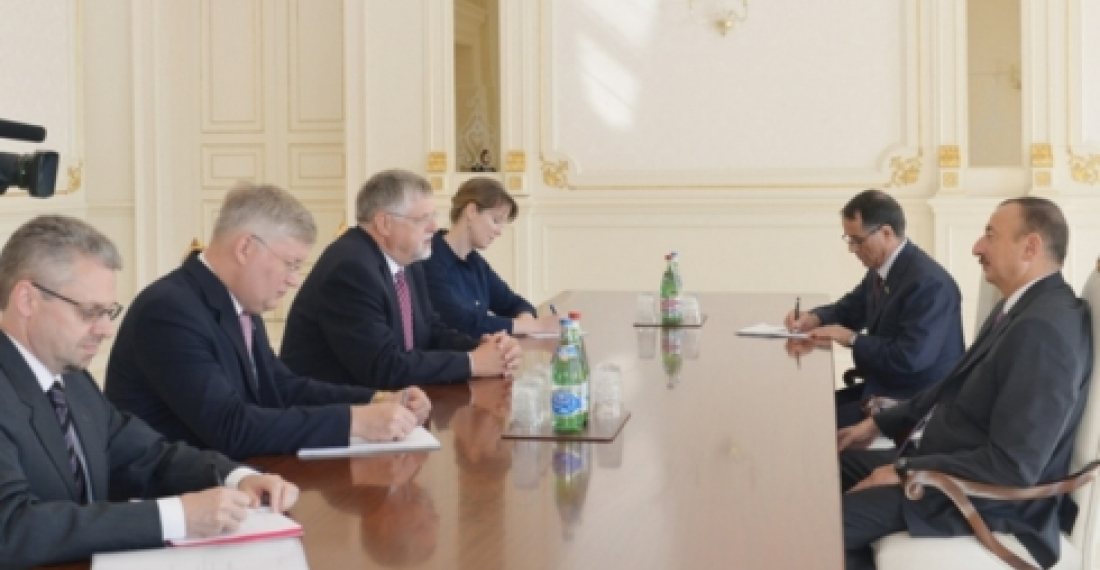The new Special Representative of the European Union for the South Caucasus, Herbert Salber is in Baku where this morning he met with the President of Azerbaijan, Ilham Aliev. This is the first visit of the Special Representative to Azerbaijan following his appointment earlier this month.
During the course of the meeting with the Azerbaijani leader, Herbet Salber said that the European Union is wanted to expand its relations with the South Caucasus countries. It was looking forward to boost its co-operation with Azerbaijan. Salber said that the European Union was determined to contribute towards a resolution of the conflicts in the region, including the Nagorno-Karabakh conflict.
On his part President Ilham Aliyev congratulated Herbert Salber on his appointment as the Special Representative of the EU for the South Caucasus and expressed confidence that the visit would be a good chance to get closely familiarised with the situation in the region. President Aliev said that if the Nagorno-Karabakh conflict was not resolved justly the situation in the South Caucasus was likely to get very complicated.
The EU Special Representative later met the Minister of Defence of Azerbaijan, Col. General Zakir Hasanov.
Herbet Sabler and his delegation will tomorrow travel to Yerevan for meetings with the Armenian leadership.
source: commonspace.eu
photo: The EU Special representative Herbet Sabler in a meeting in Baku on Wednesday, 23 July with the President of Azerbaijan Ilham Aliev. (picture courtesy of the Press Service of the President of Azerbaijan).







